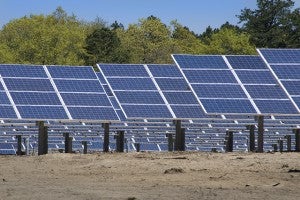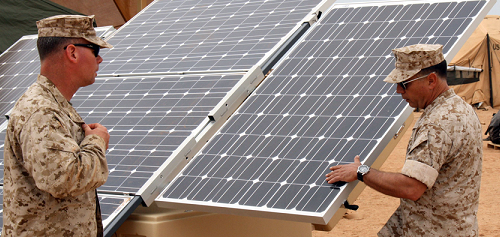 What do rural electric cooperatives have in common with United States military bases? They all want clean, reliable, affordable energy.
What do rural electric cooperatives have in common with United States military bases? They all want clean, reliable, affordable energy.
Rural electric cooperatives are not-for-profit electric utilities that provide reliable, at-cost electricity to their members. They’re ingrained in the American landscape: more than 900 rural cooperatives serve more than 42 million customers in 47 states, accounting for 12 percent of all U.S. electricity sales. Because of their market share and core mission to provide affordable, “at-cost” electricity, co-ops represent a huge (and largely untapped) clean energy opportunity. One way they’re starting to tap this potential is through partnerships with local military bases.
The U.S. Department of Defense (DoD), which operates more than 300 domestic bases, is federally mandated to lower its energy consumption – and for good reason. The DoD is our nation’s largest single energy user, and as a result, has committed to expanding its clean energy portfolio to cut energy use. Each military service has ambitious goals to deploy one gigawatt of on-site renewables in the near future, and many are jump-starting these efforts on bases across the United States. Read More














